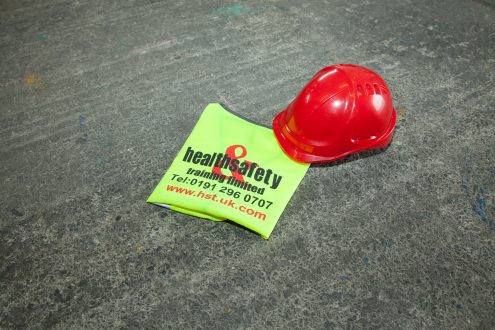First Aid: How to deal with concussion in the workplace
What is concussion?
Concussion is the most common kind of brain injury that causes a loss of mental function, usually only for a short period.
What causes concussion?
A concussion is a brain injury, caused by a trauma. This is most commonly the result of a blow to the head, a fall or an accident that causes the brain to shake or jar inside the skull.
Even in the safest of workplaces a fall that results in a bump to the head can cause concussion, but it is more common in warehouses, on construction sites and in other environments where physical work is expected.
On building sites, hazards such as falling tools, slips and trips and vehicle collisions are much more common and the injuries are more likely to lead to concussion and other injuries.
Concussion can often go undiagnosed, as recovery is usually very quick and there are no visible signs, but it is often accompanied by cuts, bruises or other injuries caused by the accident, that will need treatment.
The symptoms of concussion:
- temporary loss of consciousness
- a loss of memory and confusion
- issues with vision, such as blurriness or seeing stars
Slight symptoms are not too much of a cause for concern, and can be treated easily with an ice pack to reduce swelling and paracetamol to control the pain. Alcohol should definitely be avoided. If the symptoms persist or worsen, a trip to the hospital is advised.
Other, more serious symptoms that indicate you should call for immediate medical assistance, include:
- a long period of unconsciousness after the initial trauma
- vomiting, fits or seizures
- bleeding from the ears
- difficulty staying awake, speaking, or understanding
What to do if you suspect concussion?
If you even slightly suspect that concussion has occurred, as a first aider for your business or organisation, it is your responsibility to:
- make sure the patient makes a full recovery
- ensure the patient is in the care of a responsible person
- seek professional medical assistance if the symptoms worsen or if full recovery isn’t evident.
Has the patient recovered?
The patient should be fully alert and responding to voices and questions normally. You can also check that they have a normal response to pain by pinching them slightly to see if they move away.
Even with full recovery, a recently concussed person should be closely monitored for signs of deterioration. If the incident occurred at work, a responsible person should stay with the patient to check for signs such as a worsening headache, difficulty in speaking, vomiting and lack of balance. These are all symptoms that can present themselves after you think the patient has recovered.
They should not be allowed to return to work, especially if they have a physical job. Instead they should be sent home and into the care of a friend or relative that can continue to monitor them.
You should advise that the patient goes to hospital immediately if the above symptoms return, or if they are elderly, have recently had brain surgery, take any type of anti-clotting medicine, are intoxicated or if they don’t have a friend or relative to look after them.
Health and Safety Training Ltd.
To ensure you have the skills you need to help a co worker or colleague with concussion, contact the team at Health and Safety Training Ltd. We have years of experience delivering first aid training to businesses and individuals throughout Northern England, and can tailor our courses to give you the best skill set for the hazards present at your workplace. Simply get in touch today to find out more.
The Health & Safety Kit: Gas Safety Construction Dust: The Silent Killer





